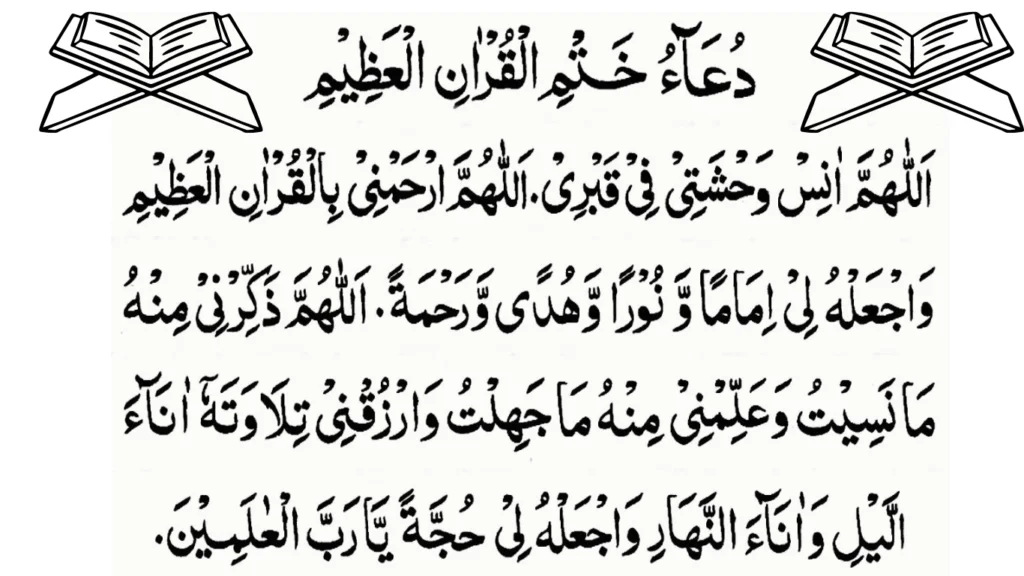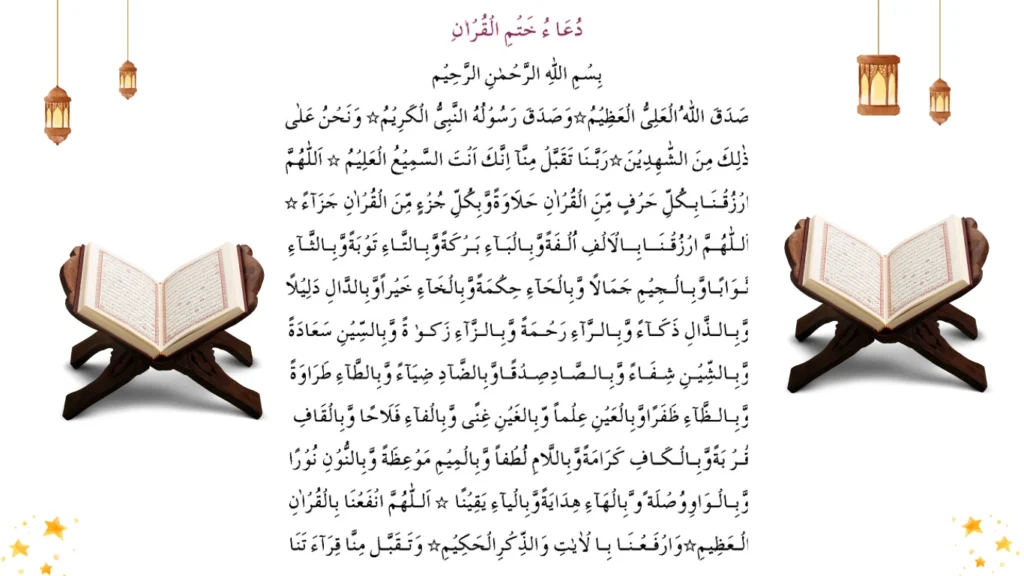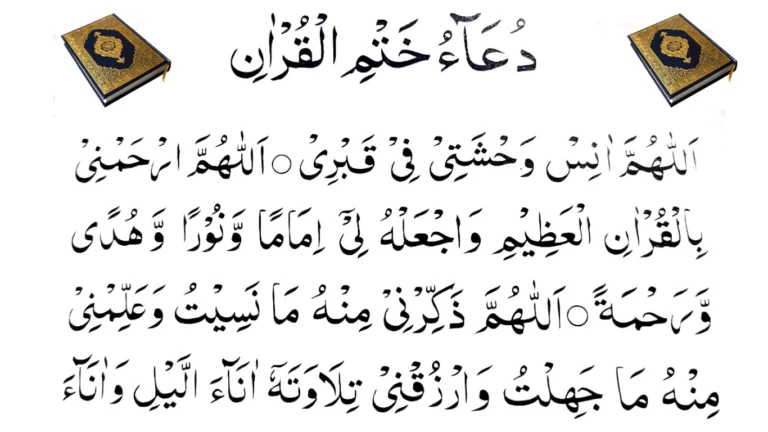Completing the Quran is a significant milestone for any Muslim, one that comes with a deep sense of accomplishment and spiritual fulfilment. However, it is crucial to approach this accomplishment in a manner that aligns with the teachings of the Prophet (peace and blessings of Allah be upon him) and the righteous salaf (may Allah be pleased with them). In this blog post, we will explore the proper way to make du’a upon completing the Quran, avoid reprehensible innovations (bid’ah), and adhere to the practices that have been authentically narrated.
Dua after Completion of the Quran

Dua of Khatam Quran

Importance of Completing the Quran
The Quran is the holy book of Islam, a divine guide for mankind that offers wisdom, guidance, and solace. Completing the Quran is not just about reading the words; it’s about understanding the message and applying it to our daily lives. For many Muslims, completing the Quran, especially during the holy month of Ramadan, is a spiritual goal that brings immense blessings and rewards.
What Is Bid’ah and Why Should It Be Avoided?
Bid’ah refers to any innovation in religious matters that were not practised by the Prophet (peace and blessings of Allah be upon him) or his companions. While some may view these innovations as harmless additions, they can lead to misguided practices that deviate from the authentic teachings of Islam. The Prophet has warned us about the dangers of bid’ah, stating that every innovation is a form of misguidance.
The Correct Approach to Du’a After Completing the Quran
Shaykh Ibn Baz (may Allah have mercy on him), a respected Islamic scholar, was asked if there is a specific du’a for completing the Quran. He clarified that there is no evidence of a specific du’a for this purpose. Therefore, it is permissible to make du’a in any manner, asking Allah for forgiveness, guidance, and the best in this world and the Hereafter.
Making Du’a in General
When making du’a after completing the Quran, it is recommended to raise your hands and call upon Allah sincerely. Ask for His blessings, guidance, and mercy. You can pray for personal needs, the well-being of your family and friends, and the betterment of the Muslim community. There are no specific words that need to be recited; what matters most is the sincerity and humility in your heart.
Du’a for Understanding and Acting Upon the Quran
One of the most beneficial supplications you can make is to ask Allah to help you understand the Quran in a manner that pleases Him and to act upon its teachings. Pray for the strength to implement the divine guidance in your daily life and to be protected from any form of misguidance.
Du’a for Forgiveness and Paradise
Another essential supplication is to seek Allah’s forgiveness for any shortcomings and sins. Ask Him to grant you Paradise and to save you from the torment of Hellfire. These are universal prayers that reflect the core of a Muslim’s faith and aspirations.
The Role of the Righteous Salaf in Du’a Practices
The righteous salaf, including the companions of the Prophet, did not stipulate any specific du’a for completing the Quran. Anas (may Allah be pleased with him) used to gather his family and make du’a upon completing the Quran, but there were no fixed words or rituals for this practice. This flexibility allows Muslims to make du’a that is personal and heartfelt.
Avoiding Bid’ah in Du’a and Other Religious Practices
It is essential to avoid bid’ah not only in du’a but also in other religious practices. For instance, reciting du’a over food and distributing it, performing specific rituals when someone dies, or doing certain acts on Thursdays are all considered bid’ah if they were not practised by the Prophet or his companions.
The Prophet’s Warning Against Bid’ah
The Prophet (peace and blessings of Allah be upon him) has explicitly warned against introducing innovations into the religion. He emphasized adhering to his Sunnah and the way of the Rightly-Guided caliphs. Any action that is not in accordance with the teachings of Islam will be rejected, and the person will not be rewarded for it.
The Consequences of Bid’ah
Engaging in bid’ah can lead to a gradual departure from the authentic teachings of Islam. It can create confusion and division within the Muslim community, as individuals begin to follow practices that are not rooted in the Quran and Sunnah. This underscores the importance of adhering strictly to the established teachings.
Conclusion
Completing the Quran is a momentous occasion that deserves to be celebrated in a manner that aligns with the authentic teachings of Islam. While making du’a is highly recommended upon completing the Quran, it is essential to avoid any specific, innovated du’a that has no basis in the Sunnah.
By adhering to the practices of the Prophet (peace and blessings of Allah be upon him) and the righteous salaf, we can ensure that our worship is pure and pleasing to Allah. Remember, what matters most in du’a is sincerity, humility, and adherence to the authentic teachings of Islam.

